Rothko Chapel’s Art Auction Draws Powerhouse Artists Deeply Moved By One of Houston’s Truly Unique Icons
Bidding Is Open Now With Coveted Works Available
BY Catherine D. Anspon // 03.04.24Rothko Chapel Plaza with Barnett Newman’s "Broken Obelisk," dedicated 1971 (Photo by Paul Hester)
This is an exclusive preview of the upcoming Rothko Chapel Art Auction, an online auction on Artsy that is live now through this Thursday, March 7 at noon.
Since 1971, Houston’s Rothko Chapel has been an international pilgrimage site for art acolytes and human rights activists, as well as a spiritual “sanctuary for the seeker,” as is noted on the nondenominational chapel’s website.
Fundraisers for the Chapel are beyond merely glamorous galas or buzzy cocktail soirées. They convey a message, in keeping with its founders, the patrons/museum creators Dominique and John de Menil, and their still intensely relevant cry for art and activism.
A case in point is this week’s benefit for the Rothko Chapel.
The Inspirit Dinner is set for this Wednesday, March 6, at The Astorian (2500 Summer Street). It will bring together three icons who embody the meaning of the Rothko Chapel in our time: labor activist Dolores Huerta, co-founder, along with fellow heroic labor activist César E. Chávez, of the United Farm Workers Association and a 2011 Presidential Medal of Freedom honoree; actor, Chicano art collector and museum founder Cheech Marin; and Texas artist Vincent Valdez, a recipient of art world accolades such as the Ford and Mellon Foundations Latinx Artist Fellowship in 2022, and Art League Houston 2023 Texas Artist of the Year. (PaperCity Magazine is once again stepping forward as media sponsor for this storied Chapel benefit evening.)
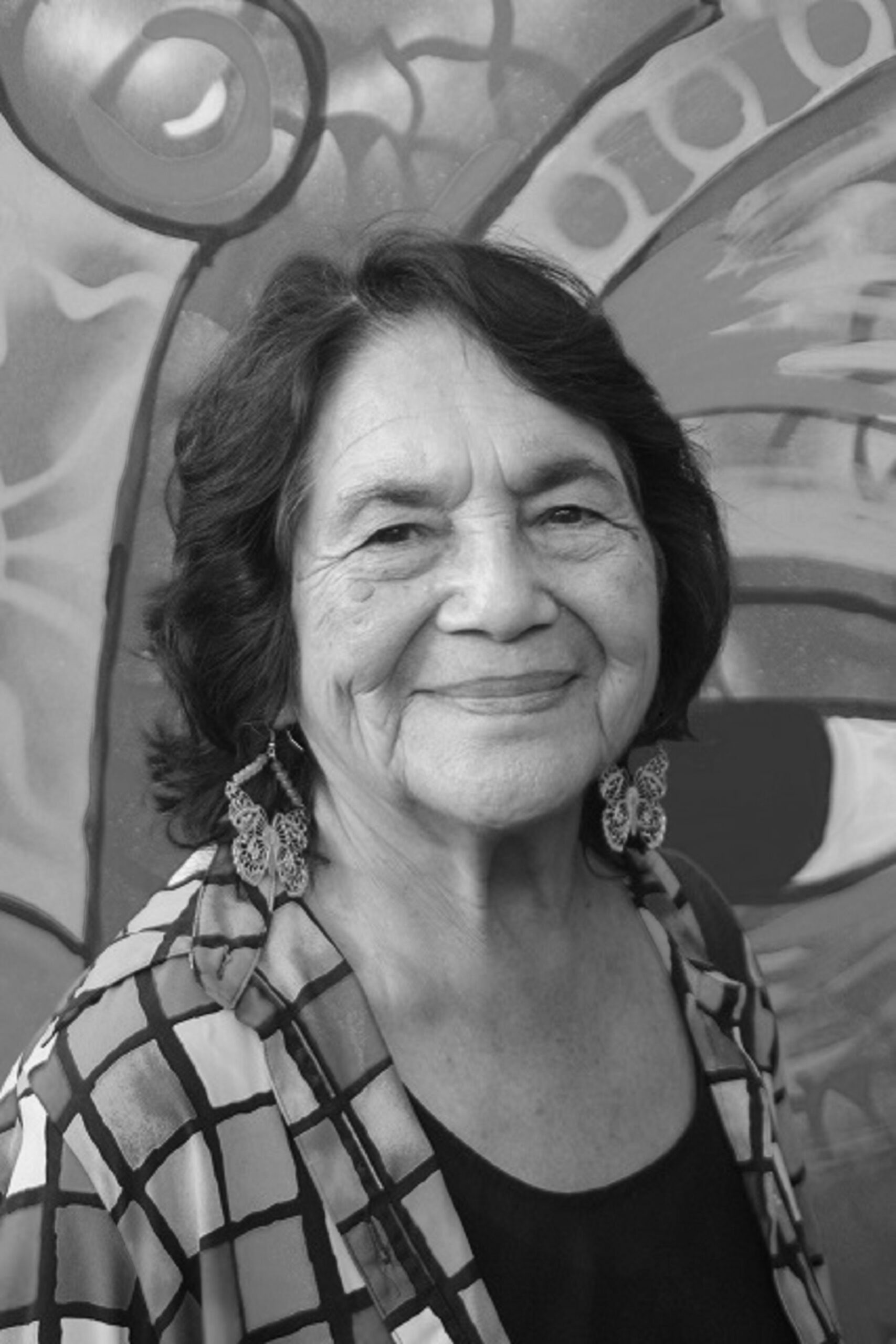
In addition to ticket and table sales, this spring’s Inspirit Dinner — chaired by Maire and David Baldwin — will feature an online auction open to dinner attendees as well as anyone who registers to bid on the platform Artsy. The Rothko Chapel Online Art Auction is live through this Thursday, March 7 at noon.
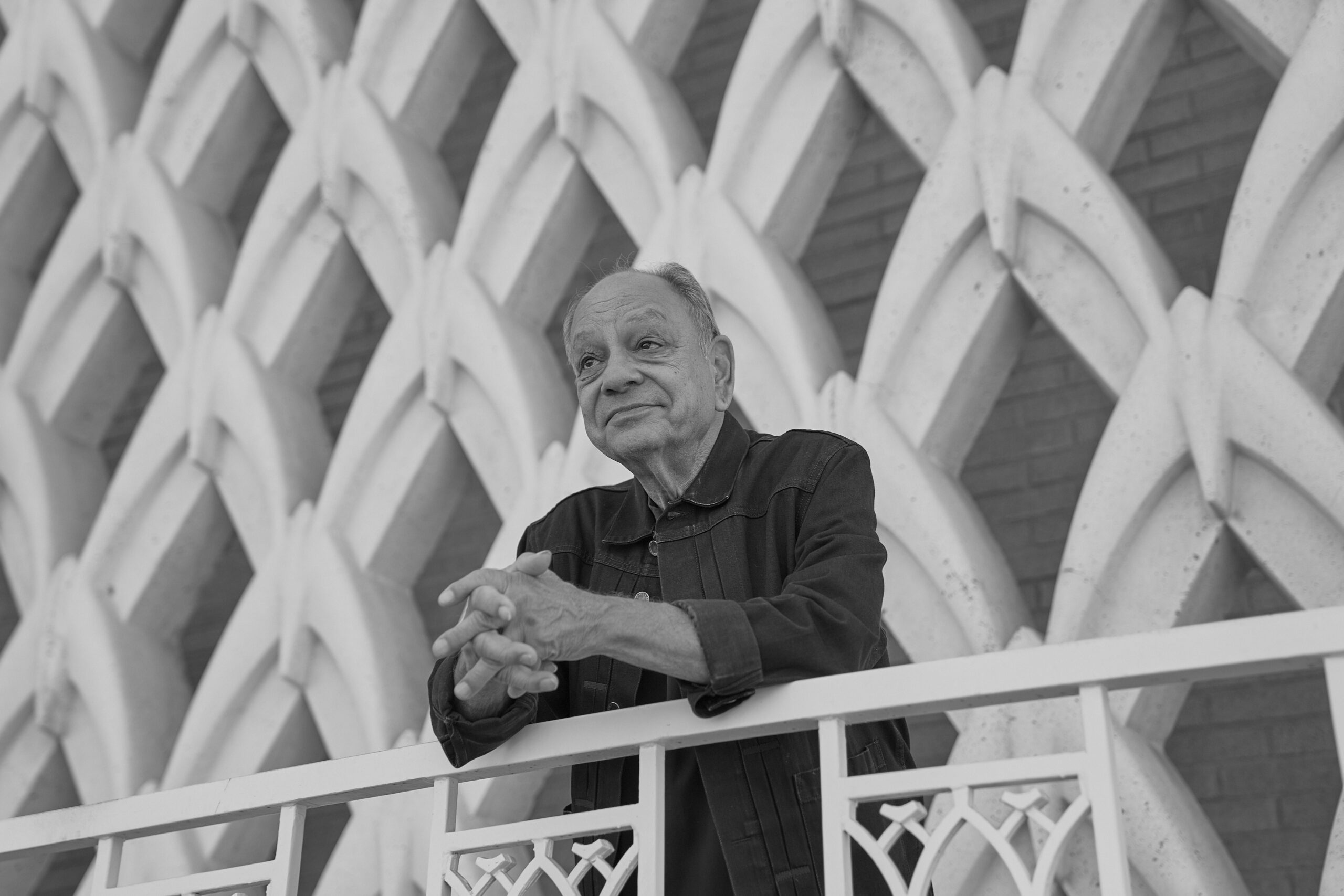
Houston blue chip gallerist Robert McClain, founder of his eponymous McClain Gallery, organized the silent auction. In addition to McClain, the auction committee includes his gallery colleagues, McClain Gallery directors Sharon Graham and Hélène Schlumberger, joined by Melissa Richardson Banks of CauseConnect.
The auction — seeded with 27 plum works from such illustrious talents as Shepard Fairey, Louise Nevelson, native Texan John Alexander and honoree Vincent Valdez — is already generating brisk bidding on Artsy.
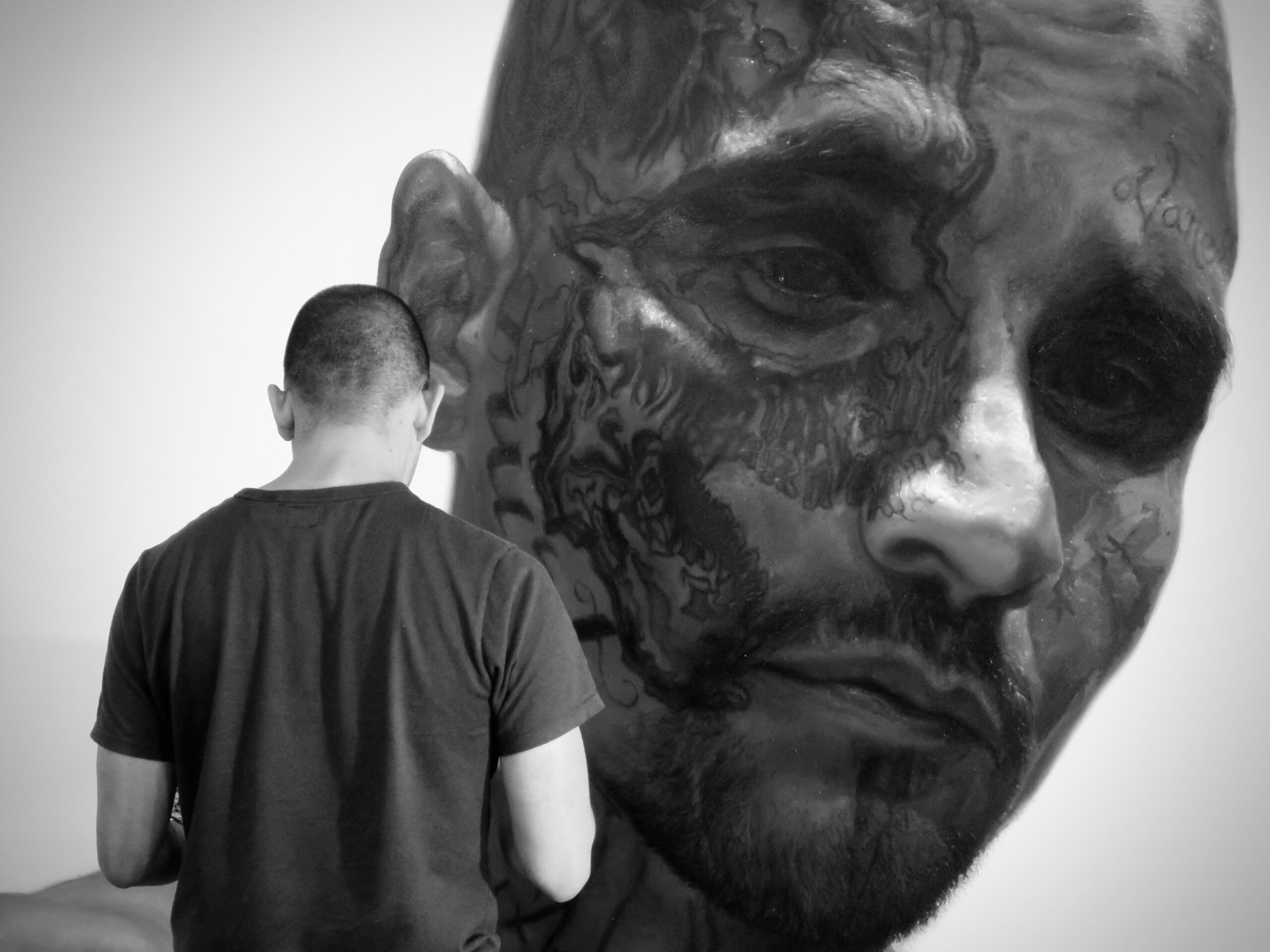
“The Rothko Chapel is a global landmark, representing the highest ambition for an artist, a patron, and as a site for social and spiritual dialogue,” McClain tells PaperCity. “The auction is a community-wide event. In organizing it, we garnered the participation of eight different Houston galleries and a diverse range of nationally known and Houston-based artists.
“With a strong group of artists of color and artists whose works evoke the ideals of the Rothko Chapel — social consciousness and spirituality.”
PaperCity rang up auction artist/painter John Alexander at his New York City studio to get more intel about why he donated to the Rothko Chapel Inspirit Dinner and the meaning the Chapel holds for him.
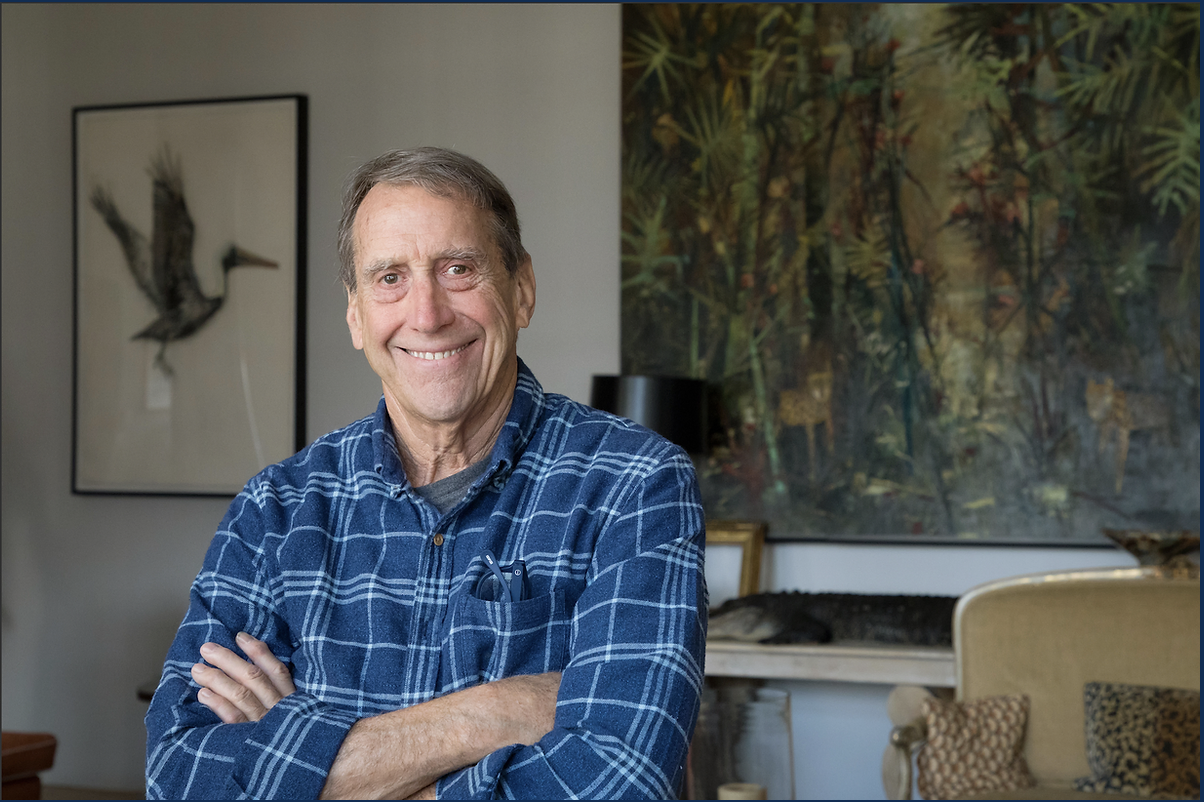
“When I moved (in 1970) to the old Montrose neighborhood, my only home in Houston, the Rothko Chapel was under construction,” Alexander says. “Absolutely no one could have possibly imagined the complex vitality of what was to come.
“(The Rothko Chapel] literally brought great positive energy and change to a city still struggling with the horrors of Jim Crow. I believe in the power of art, and the power of the spirit and oh, what power the Rothko Chapel generates.”
Glancing back a half century ago, Alexander recalls the fraught time of the early 1970s in Houston, the era when the Rothko Chapel first opened.
“I remember what a hotbed of political, liberal conversation, and activism, (the University of St. Thomas) was, much more so than Rice or University of Houston. . .” Alexander says. “When you came out of the Rothko Chapel you saw that reflecting pool and that Broken Obelisk — Barnett Newman’s — standing there.
“Then knowing the history of Rothko and Barnett Newman together, and how they were both Jewish immigrants from the old country, they both lived in times of great repression, and so forth. And both experienced that even when they got to New York, and they were very akin spiritually, and they knew each other well.
“So to see that interchange of those two kind of brooding masters, side by side in that context (of the Rothko Chapel) is kind of overwhelming. Once the Chapel opened, and we entered the decade of the ‘70s, after this bleak period of the assassinations of Robert Kennedy, Martin Luther King, Malcolm X, you’re entering a new decade. And young people begin to become much more politically active, as you remember in the ‘70s.
“So that not only the Chapel itself, but the Broken Obelisk, and that park around it became a center in Houston — for demonstrations, and religious gatherings and just a place of comfort for like-minded people. And (the pull of the Chapel) caught on and began to grow. And I saw this as a young person, a young man — in 1970, I was 25 years old. I was just a kid.
“I saw the city change dramatically. We had a lot of police brutality, one of the worst police forces in the United States, in North America. We had civic leaders, mayors, city council people, prominent businesspeople who were just open bigots. So that was the Houston I moved into as a 25-year-old man.
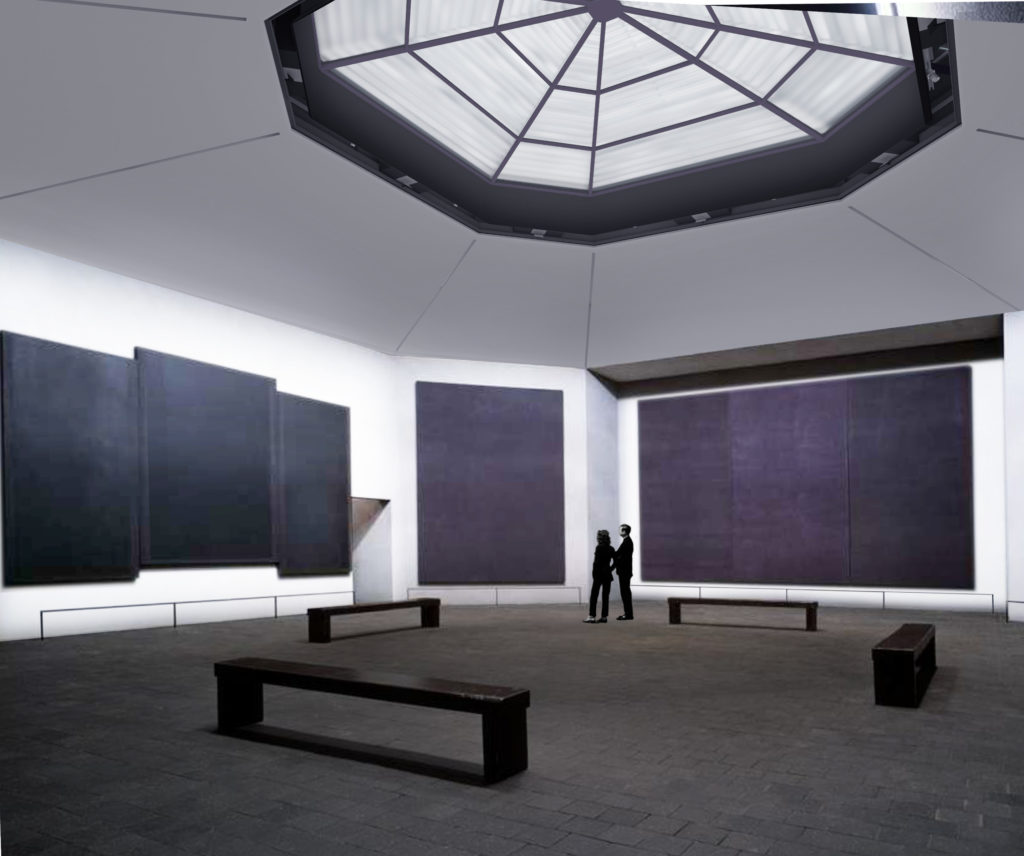
“And by the time I left Houston in 1982 to move to New York, it was Space City,” Alexander continues. “Houston was completely different. We elected the first woman mayor ever, Kathy Whitmire. . . there were the beginnings of a new city, and a new cultural awareness. And the hospitals of the Texas Medical Center, where the doctors from all over the world came to study and people came to Houston for treatment, brought a new sense of understanding of many, many different races that wasn’t there before.
“I believe that the Rothko Chapel’s timing was so perfect and so profound. I don’t know that anyone that didn’t see the germination of it — the before and the after — can have any idea of how successful that was, and how it brought a power to Houston and a spirituality that Rothko wanted, and so did Barnett Newman.
“It wasn’t about colorful art and pretty things like the Museum of Fine Arts was showing — it was about something substantive. And we cannot discount or forget how important that was. That it was an art that had a humanity to it. Every fiber of Rothko’s body was steeped in political activism and political thought and spirituality.”
Alexander’s Inspirit auction donation — the 43 inch by 32 inch canvas The Dreamer (2024, estimate $50,000) — features a heron who emits a subtle environmental statement while hearkening to the Beaumont-born artist’s Texas Gulf Coast roots. At the time of this article, the canvas had generated two bids, with the current high bid at $32,000.
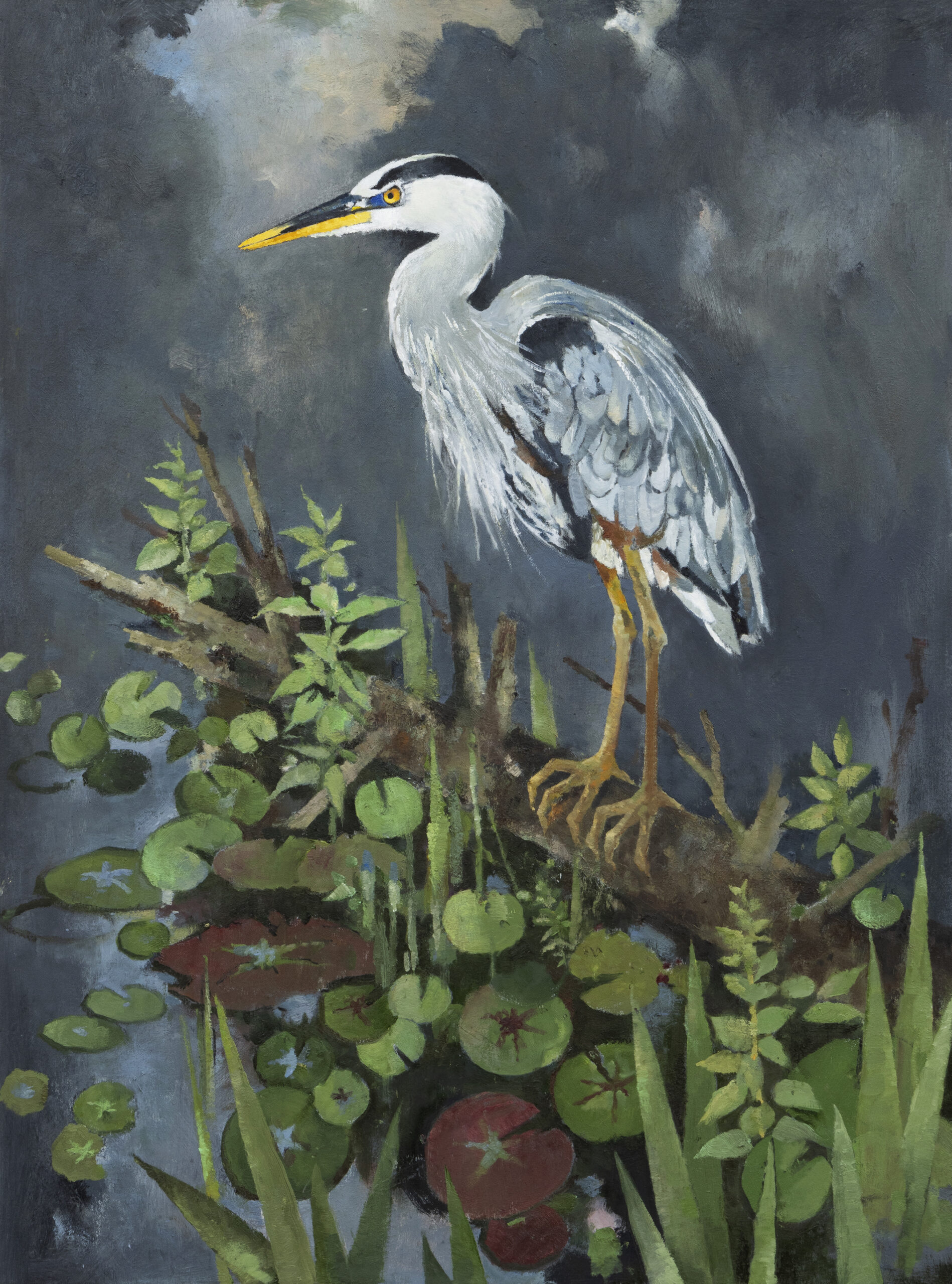
Scroll through the slideshow above this story for more Rothko Chapel Inspirit Dinner Auction highlights. Preview all 27 important lots and register to bid here through this Thursday, March 7 at noon. Auction closing times may be extended due to last minute competitive bidding.
Find more information about the Rothko Chapel, a true Houston jewel, here.
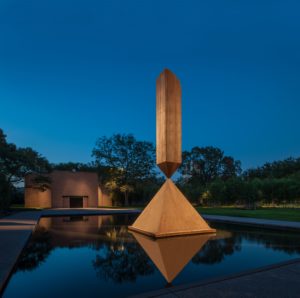
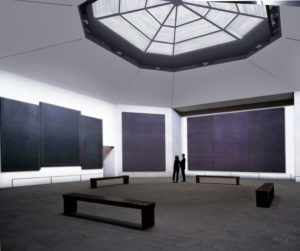
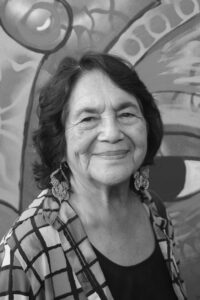





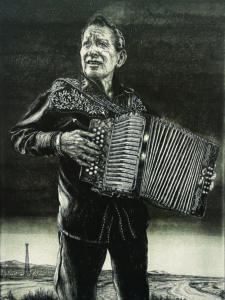

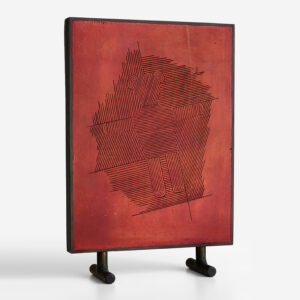

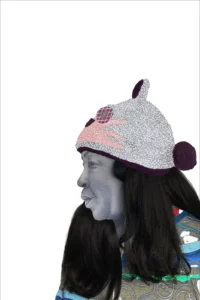
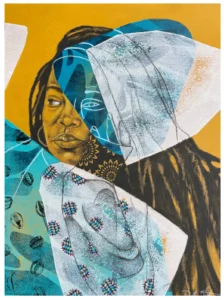
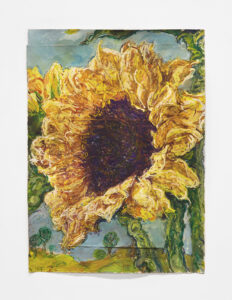





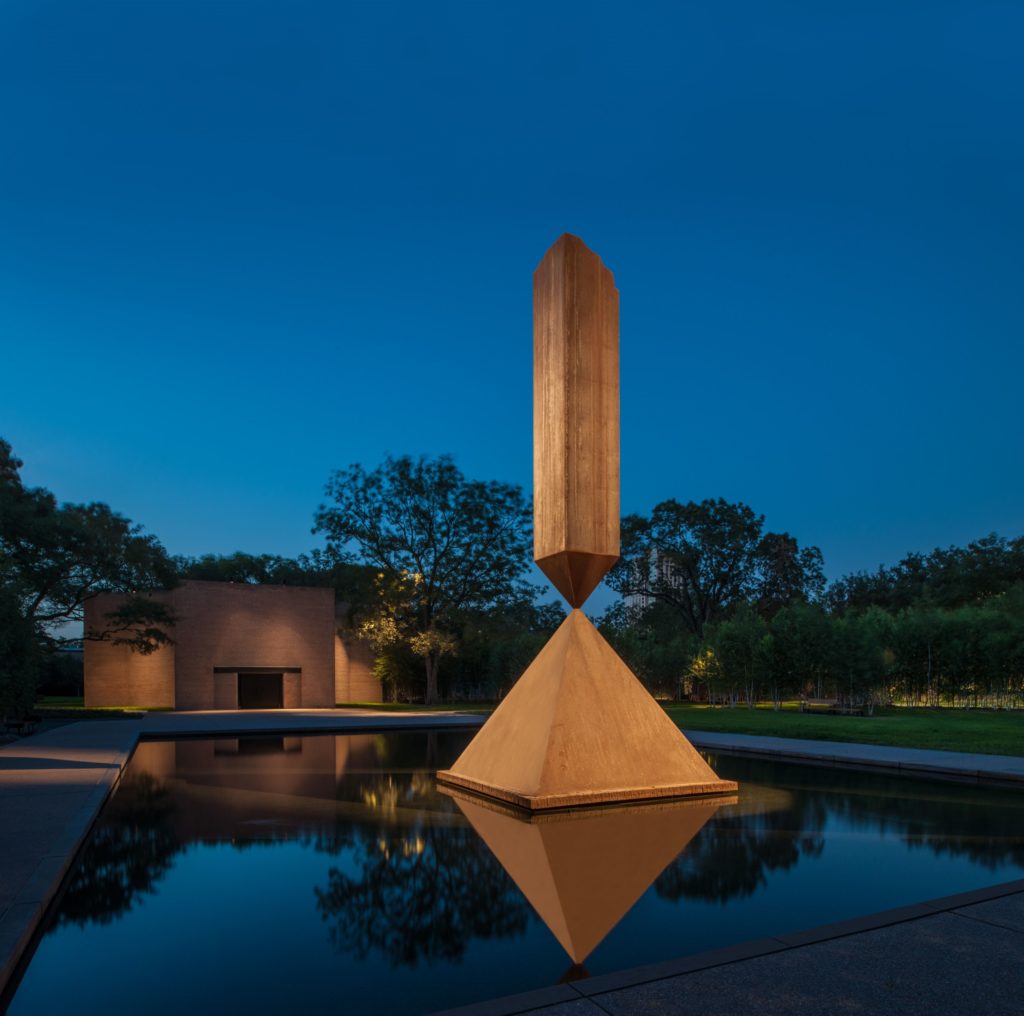











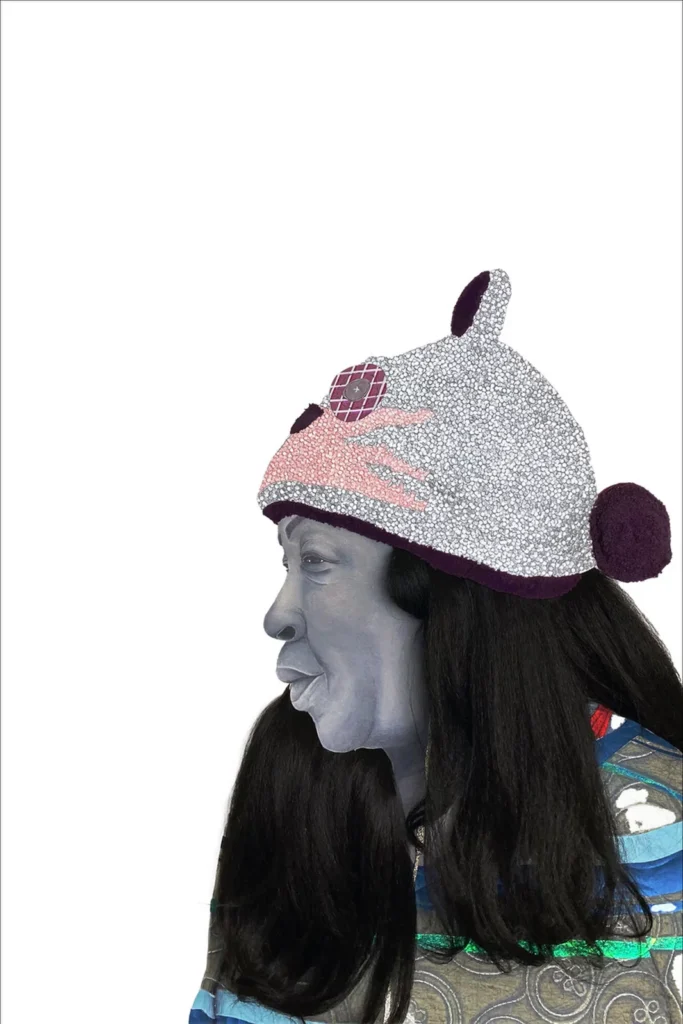
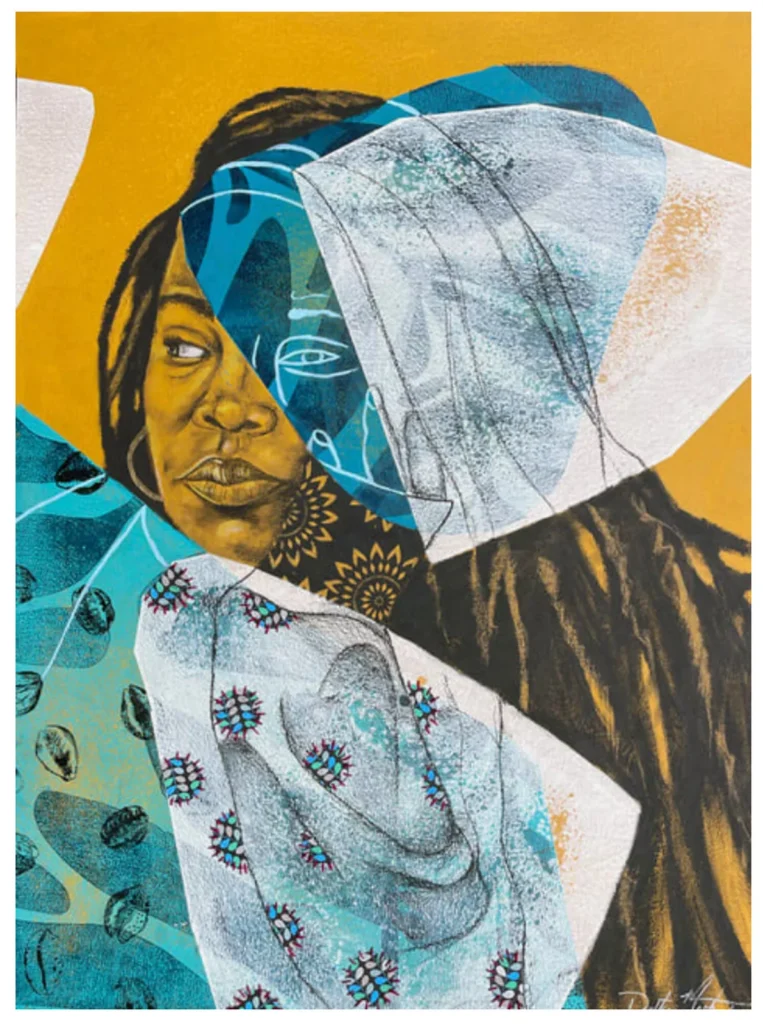



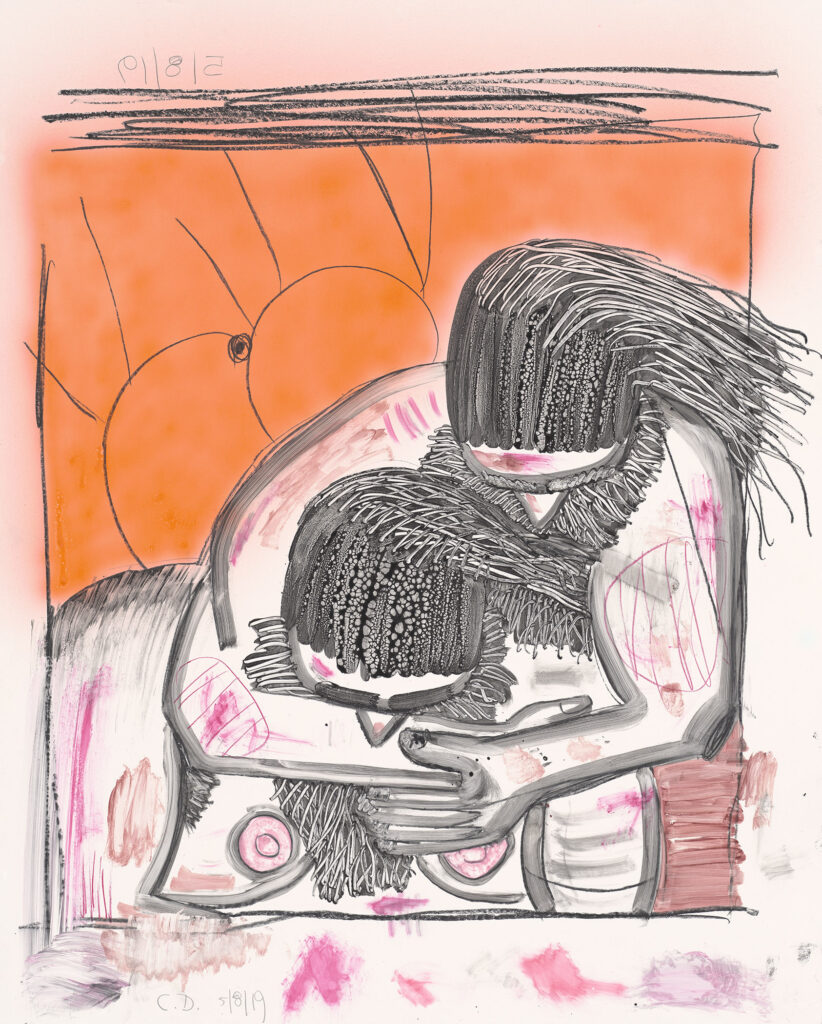

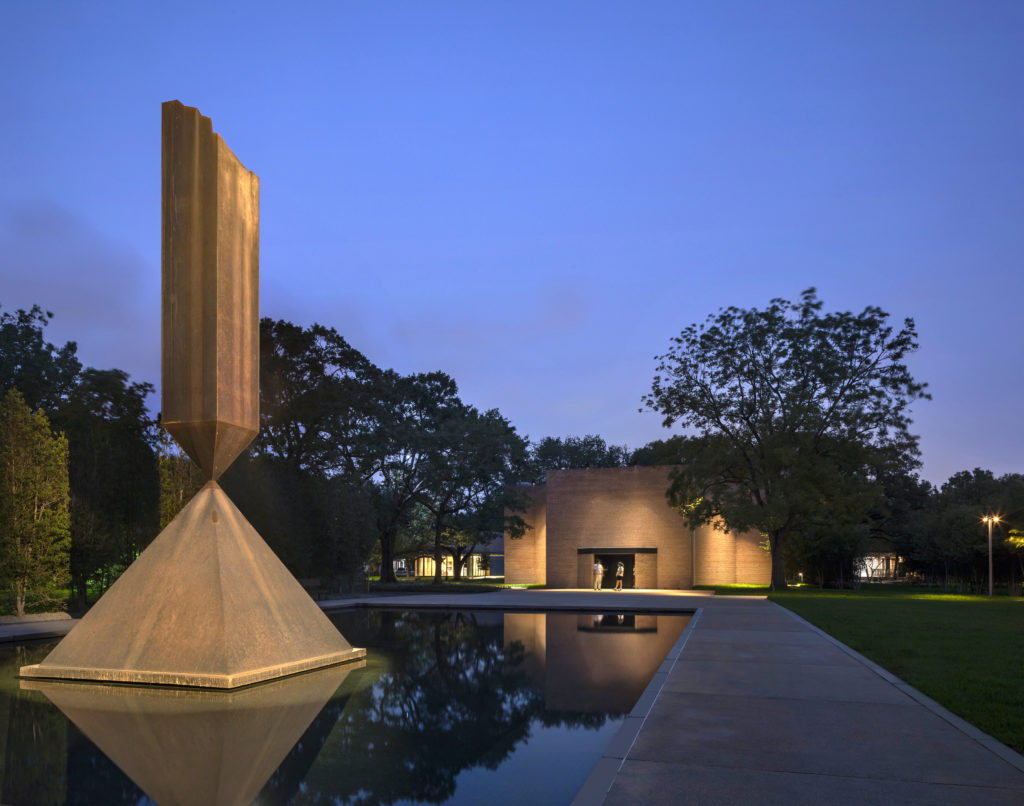











_md.jpeg)
